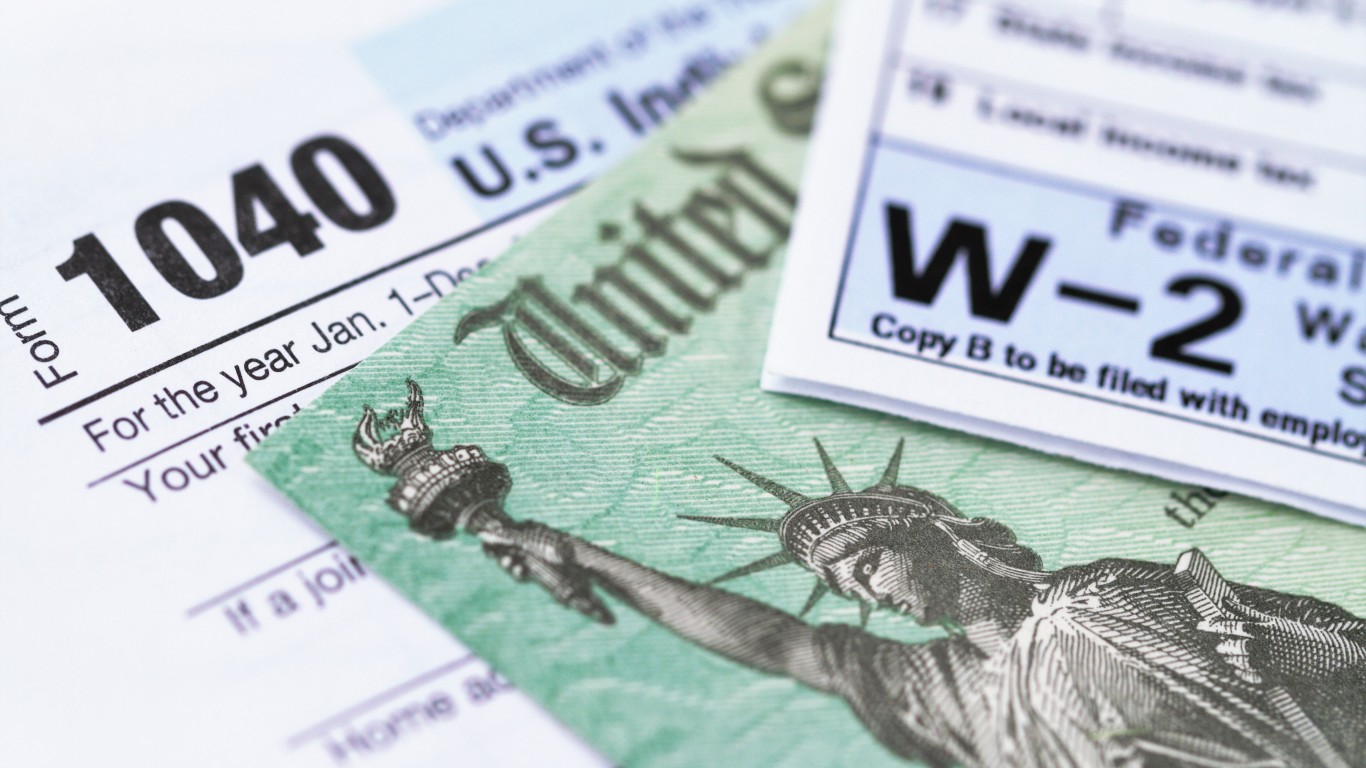retirement
Here's What to Know About Social Security If You're Thinking of Retiring Overseas

Published:

More and more Americans are retiring abroad due to escalating healthcare costs and the general cost of living in the United States. The strong dollar makes even well-developed countries an attractive destination for cash-strapped retirees. This is a trend that is likely to become even more pronounced as Gen Xers begin retiring in the next few years, as about 40% of them have nothing at all saved for retirement and will try to get by mainly on Social Security payments. You can draw Social Security living overseas in some countries but there are procedures to follow that we’ll tell you about, based on information from the Social Security Administration.
24/7 Wall St. Insights

The average Social Security benefit in 2024 is $1,911 for an individual. If both partners in a marriage qualify, they would get $3,822 a month. These figures vary based on factors like how much income each of them earned during their careers and at what age they retire. It is possible to live frugally on this in the United States, or rather comfortably in some foreign countries. The Costa Rican government, for example, offers the Pensionado visa which requires international retirees to transfer only $1,000 a month to a Costa Rican bank for living expenses. It’s possible to live comfortably on your U.S. Social Security in quite a few developing countries around the world that have excellent medical facilities and amenities for foreign residents.

Of course, you realize you can receive Social Security in any of the 50 states and the District of Columbia. But you can also do so in all the American territories: Puerto Rico, the U.S. Virgin Islands, Guam, the Northern Mariana Islands, or American Samoa. Moving to one of these places is the simplest way to retire in a culturally distinctive, affordable place without the need for a passport or problems with receiving your Social Security benefits.

Another option for you to retire outside the 50 states is to live in another country for less than 6 months at a time and return to the United States or a U.S. territory for at least 30 days to maintain your residency. For example, you could live in Mexico from January to May and July to November but go back to Ohio to visit your children in June and December when your grandkids are on school vacations. If you stay outside the country longer than 6 months, your payments will stop and won’t start again until you return to the States for at least 30 days.

Before choosing a foreign country for retirement, you need to know that the United States will not send payments to some countries—mainly those that were formerly part of the Soviet Union. These include Azerbaijan, Belarus, Kazakhstan, Kyrgyzstan, Tajikistan, Turkmenistan, and Uzbekistan, as well as Cuba and North Korea. (Remarkably, it is still possible to draw Social Security while living in Russia or Iran).

The countries listed below have Social Security agreements (called Totalization Agreements) with the United States. If you are planning to work during your retirement, these pacts help prevent you from being taxed on your income twice and allow you to split your work between both countries, if you’ll have jobs in both places.

You’ll want to prevent underpayments or overpayments in benefits to you so that will cost you time and money later, especially if you have to come up with the money to repay an overpayment. So make sure to report to the Social Security Administration any of the following changes to your circumstances:

While you’re overseas, the Social Security Administration will send you a questionnaire once every year or two. Be sure to complete and return these as soon as possible to avoid having your benefits interrupted or losing some of your rightful payments altogether.

Usually, Medicare does not cover people getting treatment outside the U.S. However, you can be covered by Medicare Part A (hospital insurance) if you return to the U.S. for treatment. Research your options and think carefully about what you want to do.
If you sign up for Medicare you’ll have premiums withheld from your Social Security benefits. This may not be to your advantage if you’re living in a country with good medical care, especially if you are eligible for that country’s medical benefits. In Ecuador, for example, as a foreigner, you can join the government health care plan for just $100 a month. On the other hand, if you don’t sign up for Medicare and then later change your mind, you’ll be charged a 10% higher premium for each year you could have enrolled but didn’t. You always have the option of arranging your own medical insurance through a private company, but this can be expensive.

Unfortunately, up to 85% of your Social Security, may be subject to U.S. income tax. This drops to 50% if you make $25-$34,000 a year for an individual or $32-$44,000 for a couple. You’ll also want to investigate online with the specific country you’re moving to about whether that government will also want to tax your income. Although paying double taxation is galling, if you do the math you could find that the money you’re saving in cost of living and medical care might still have you coming out ahead.
Thank you for reading! Have some feedback for us?
Contact the 24/7 Wall St. editorial team.